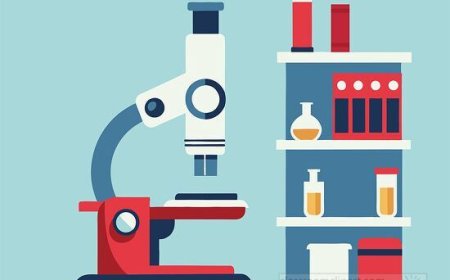Ada Lovelace Biography for Students: First Computer Programmer
Learn how Ada Lovelace imagined the first computer program more than 100 years before modern computers existed and inspired future generations of coders
🧮 Introduction: A Programmer Before Computers
In a time when people traveled by horse and wrote with quills, one young woman imagined machines that could do more than just math-they could think.
Her name was Ada Lovelace, and she's considered the first computer programmer-even though she lived in the 1800s, long before any real computers were built.
Ada used mathematics, imagination, and vision to create the world's first computer program-paving the way for the digital world we live in today.
👧 Early Life: A Brilliant and Curious Mind
Ada Lovelace was born on December 10, 1815, in London, England. Her full name was Augusta Ada Byron, and her father was the famous poet Lord Byron. Her mother, however, wanted Ada to focus on math and science instead of poetry.
As a child, Ada was:
-
Deeply curious
-
Great at solving logic puzzles
-
Fascinated by machines and inventions
She once designed a flying machine powered by steam when she was just 12 years old!
📚 A Mathematician Meets a Machine
As a teenager, Ada met a mathematician and inventor named Charles Babbage, who showed her plans for a mechanical computer called the Analytical Engine.
The machine could:
-
Add, subtract, multiply, and divide
-
Use punch cards to give instructions
-
Store information like memory
No one had built it yet, but Ada understood its potential better than anyone. She realized it could do more than math-it could follow a set of steps to do anything.
💡 Writing the First Computer Program
In 1843, Ada translated an article about the Analytical Engine and added her own detailed notes-which were longer than the article itself.
In these notes, she wrote:
-
How the machine could follow commands
-
A step-by-step algorithm (set of instructions)
-
Ideas about using machines to work with music, letters, or symbols
Her notes described the first computer program in history!
This was more than 100 years before real computers were invented.
👩🔬 Why Ada's Work Was So Important
Ada Lovelace wasn't just writing about a machine-she was thinking like a modern software engineer.
She saw:
-
The power of code to do more than math
-
That instructions could control a machine
-
That machines might help people think, learn, and create
She imagined a future where humans and machines could work together.
⚖️ Struggles and Legacy
Ada faced challenges:
-
She lived in a time when women weren't encouraged to study math
-
She had health problems for much of her life
-
She died young, at just 36 years old
For many years, her work was forgotten.
But in the 20th century, people rediscovered her notes and realized she had laid the foundation for modern computing.
🏅 Honors and Impact
Today, Ada Lovelace is celebrated around the world. She has:
-
A programming language named after her: Ada
-
Her own day of celebration: Ada Lovelace Day (October)
-
A crater on the moon named in her honor
-
Statues, buildings, and schools named after her
She's known as the mother of computer programming.
🤩 Fun Facts About Ada Lovelace
-
She called herself an "Analyst and Metaphysician"-someone who used both math and imagination.
-
She predicted that machines might one day compose music-just like AI does now!
-
Ada described her ideas as "poetical science."
-
She was close friends with inventor Charles Babbage and even helped edit his work.
👧👦 Why Kids Love Ada Lovelace
Ada Lovelace shows that:
-
You don't need a machine to invent something big
-
Girls can lead in science, math, and technology
-
Imagination and logic work best together
-
Ideas can shape the world-even if no one else sees them yet
Her story is a mix of mystery, magic, math-and innovation.
🏁 Conclusion: Dreaming in Code
Ada Lovelace proved that big ideas can start before the technology even exists. Her writing about the Analytical Engine became the spark that lit the world of computing.
What kind of program would you write for the future?Like Ada, you don't need to wait-you can dream it now and help build it tomorrow.



















































